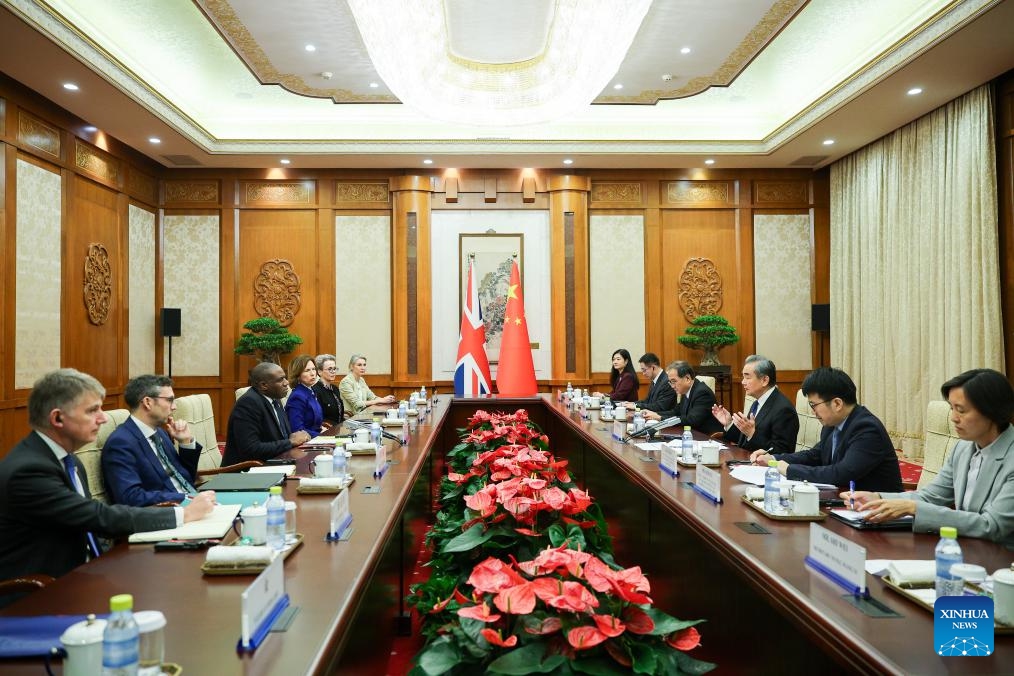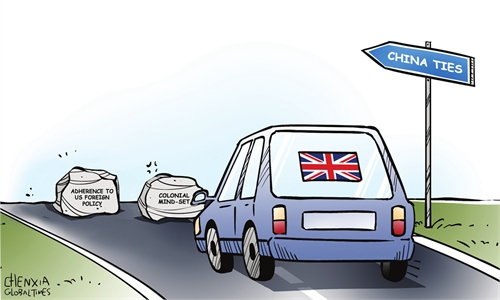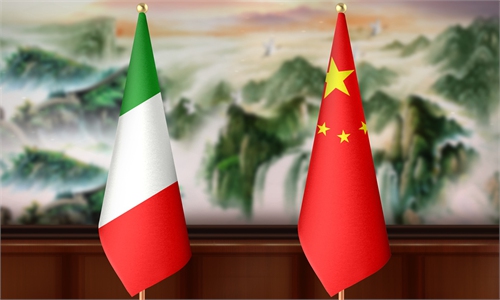
Chinese Foreign Minister Wang Yi, also a member of the Political Bureau of the Communist Party of China Central Committee, holds talks with Secretary of State for Foreign, Commonwealth and Development Affairs of the United Kingdom David Lammy in Beijing, capital of China, Oct. 18, 2024. (Photo: Xinhua)
UK foreign secretary David Lammy is paying an official visit to China from October 18 to 19. This visit is anticipated to be a significant diplomatic event. Lammy had already met with Chinese Foreign Minister Wang Yi on July 26 during the ASEAN Foreign Ministers' event in Laos. These diplomatic engagements suggest that the new Labour government, formed in July under the leadership of Keir Starmer, intends to reassess and potentially recalibrate its relationship with Beijing. Maintaining a stable and productive relationship with China could be pivotal for the new government.Forced to handle relentless challenges brought by its exit from the European Union, the UK has found itself entrapped in a crisis of its international identity, without a clear idea of how to redefine its position in the world that is continuously reshaped by the highly volatile global economy and geopolitics. Ever since its exit, the UK has been kept outside the European Single Market and its influence on the European continent, in both economic and strategic terms, has been seriously compromised.
The situation is further complicated by its relations with the US. Despite the long-standing UK-US "special relationship," the US has not provided the UK with its long-desired preferential trade agreements, and their bilateral free trade talks are on a slow pace with little progress and uncertain prospects.
Also, the energy crisis and subsequent recessions of the European continent since the breakout of the Ukraine crisis in February 2022 inevitably impacted the UK and dragged its economy into a slowdown.
Drifting between the US and the European continent, and disrupted by economic slumps and political antagonisms, it needs to locate new opportunities and resources to fully reinvigorate its potential for growth and prosperity. Against this background, it is understandable that UK political leadership would put their attention on China, the second-largest economy of the world with a considerable potential for business cooperation, and tentatively inquire about the possibility of future development of bilateral relations.
Economic data highlights the significance of China-UK trade relations. In 2023, bilateral trade between China and the UK reached $97.9 billion, making China the UK's largest trading partner in Asia. This figure reflects a diverse and expanding trade relationship, with China offering vast market opportunities and investment potential for British businesses. In addition, over 500 Chinese companies have established operations in the UK, further illustrating the deep economic ties between the two countries. The robust economic relationship suggests there is substantial potential for further collaboration between the two countries, particularly in sectors such as technology, finance and green energy.
However, the promising economic landscape was shadowed by political and ideological differences. China-UK relations reached its zenith when David Cameron promoted a "golden era" in 2015. Nevertheless, starting from Theresa May's government, the relationship has experienced setbacks. The May administration banned Huawei from supplying core parts for the UK's 5G mobile phone network, citing "national security concerns." Under her successor Boris Johnson, China was defined as the UK's "systemic competitor" in March 2021. The subsequent Liz Truss administration continued this trend, while the Rishi Sunak administration labelled China as an "epoch-defining challenge" in its updated policy paper Integrated Review Refresh 2023. These actions reflect the UK's lack of confidence toward China and global power dynamics.
In addition to these tensions, the UK's foreign policy has been heavily influenced by its close alliance with the US, particularly over the "Indo-Pacific" region. The UK's strategic view of the "Indo-Pacific" is closely aligned with that of the US, linking China-Russia relations with the ongoing Ukraine crisis and following the US in military initiatives in the "Indo-Pacific" region. These actions have deepened distrust between China and the UK, creating more obstacles to cooperation in other fields.
Currently, both the EU and the US are facing significant political transitions, and the UK, caught between the US and the EU, is anxiously watching for potential storms on the horizon. The upcoming US presidential election and changes within the EU's political landscape are expected to have a direct impact on the UK's foreign policy. Against this backdrop, the Starmer administration's "three Cs" policy toward China - cooperate, compete and challenge - demonstrates its intent to adopt a more pragmatic approach to its relations with China.
It is hoped that Lammy's visit to China will create new momentum in China-UK relations, particularly in the fields of business and trade. If the Starmer administration can maintain a pragmatic attitude in economic collaboration while seeking dialogue on political issues, bilateral relations may find new opportunities amid the challenges.
The author is a research fellow of the Centre for the European Union Studies, Shanghai International Studies University. opinion@globaltimes.com.cn



